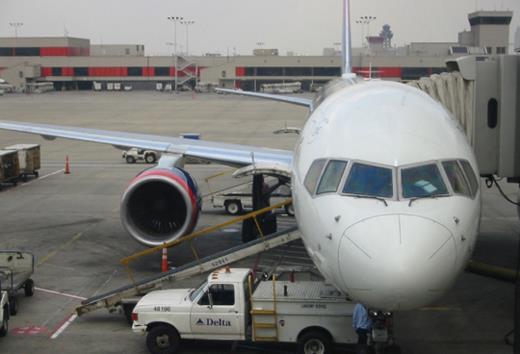

Freight Forwarding
A freight forwarder, forwarder, or forwarding agent, is a person or company that
organizes shipments for individuals or corporations to get goods from the manufacturer
or producer to a market, customer or final point of distribution. Forwarders contract
with a carrier to move the goods. A forwarder does not move the goods but acts as
an expert in supply chain management. A forwarder contracts with carriers to move
cargo ranging from raw agricultural products to manufactured goods. Freight can
be booked on a variety of shipping providers, including ships, airplanes, trucks,
and railroads. It is not unusual for a single shipment to move on multiple carrier
types. 'International freight forwarders" typically handle international shipments.
International freight forwarders have additional expertise in preparing and processing
customs and other documentation and performing activities pertaining to international
shipments.
Information typically reviewed by a freight forwarder includes the commercial invoice,
shipper's export declaration, bill of lading and other documents required by the
carrier or country of export, import, and/or transshipment. Much of this information
is now processed in a paperless environment. The FIATA shorthand description of
the freight forwarder as the 'Architect of Transport' illustrates the commercial
position of the forwarder relative to his client. In Europe, some forwarders specialize
in 'niche' areas such as rail-freight, and collection and deliveries around a large
port.
International ocean freight forwarders arranging for shipments to and from the US
must be licensed by the Federal Maritime Commission as Ocean Transportation Intermediaries.[4]
An Ocean Transportation Intermediary is either an ocean freight forwarder or a non-vessel
operating common carrier (NVOCC). An ocean freight forwarder is an individual or
company in the United States that dispatches shipments from the United States via
common carriers and books or otherwise arranges space for those shipments on behalf
of shippers. Ocean freight forwarders prepare and process documentation and perform
related activities pertaining to shipments. An NVOCC is a common carrier that holds
itself out to the public to provide ocean transportation, issues its own bills of
lading or equivalent documents, but does not operate the vessels that transport
cargo. Companies may obtain both licenses and may act in both capacities. The U.S.
legal distinction between the two is that a freight forwarder acts as the agent
of a principal (typically a shipper or consignee) and the NVOCC is a transportation
company (carrier) that is physically responsible for the carriage of goods and acts
as its own principal. Companies acting strictly as an Ocean Freight Forwarder typically
do not issue their own contract of carriage (bill of lading) and as agent are generally
not liable for physical loss or damage to cargo except in cases of errors in judgment
or paperwork or fiduciary responsibility. NVOCC's act as ocean freight carrier and
issue their own bill of lading and are legally responsible for physical loss or
damage in accordance with the terms and conditions of their bill of lading and tariff.
Similar to other countries, freight forwarders that handle international air freight
frequently obtain accreditation with the International Air Transport Association
(IATA) as a cargo agent; however, they must obtain an Indirect Air Carrier (IAC)
certification from the Department of Homeland Security (DHS).